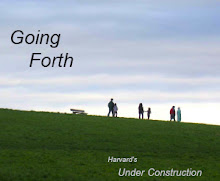The dying need ‘comprehensive, compassionate end-of-life care,’ not physician-assisted suicide, say palliative care providersBY KEVIN BIRNBAUMEnd-of-life issues have been thrust into the spotlight in recent months by the debate surrounding Initiative 1000, the November ballot measure that would legalize physician-assisted suicide in Washington state if approved by voters.
Proponents of the initiative point to the potential physical suffering and loss of autonomy associated with terminal illnesses to support their position. According to the Yes! on I-1000 Web site, “When facing the prospect of agonizing pain, breathlessness, nausea and vomiting, or loss of dignity at the end of life, many patients achieve tremendous peace of mind if they know there is a safe and dignified alternative.”
For supporters of the initiative, that alternative would entail ingesting a massive and lethal overdose of doctor-prescribed barbiturates.
But area providers of hospice care say that services are already readily available to help people with terminal illnesses live and die in comfort, control and dignity, without the moral and practical problems raised by physician-assisted suicide.
What is hospice?Hospice is the subset of palliative care specifically for people with a prognosis of less than six months to live – the same population targeted by Initiative 1000. Like all palliative care, hospice aims to control the symptoms and pain associated with a patient’s condition rather than trying to cure it. But hospice, which is fully covered by Medicare and most insurance plans, is about more than just reducing pain.
“It’s holistic care aimed at supporting a patient’s emotional, spiritual and psychosocial needs – body, mind and spirit,” said Mark Rake-Marona, director of Franciscan Hospice and Palliative Care in Pierce County. “And we care not only for the patient, but also for the family and anyone who’s affected by the terminal illness.”
Most hospice care takes place in the patient’s home, though some hospice providers have inpatient facilities, like the 20-bed Franciscan Hospice House, for patients who need more intensive treatment. Hospice providers employ a wide range of specialists to ensure that patients are as comfortable as possible.
“We have physicians, nurses, social workers, chaplains, we have a cadre of comfort therapists that provide massage, music, aromatherapy, hypnotherapy, art therapy, and we have hospice aides that provide personal care like bathing,” said Rake-Marona. “It’s a pretty comprehensive service.”
Contrary to the common misconception that “hospice equals death,” the philosophy of hospice is to neither hasten nor postpone death, said Lyn Miletich, director of public relations for Providence Hospice of Seattle. “Hospice is more about quality of life, and having that until the end of life, than it is about dying,” she said.
In fact, said Rake-Marona, hospice’s holistic approach to care is so successful that “we actually discharge 20 percent of our patients that are admitted alive, meaning they don’t die.”
Controlling painWhile supporters of Initiative 1000 point to unbearable physical suffering as a reason for legalizing physician-assisted suicide, major medical advances have been made in recent years in the treatment of pain, nausea, vomiting and other symptoms of terminal illnesses, said Dr. Mimi Pattison, the medical director for Franciscan Hospice and Palliative Care.
“It’s extremely unusual that we cannot get symptoms under satisfactory control to meet the wishes of the patient and family,” said Dr. Pattison.
In fact, hospice providers have become so adept at alleviating physical suffering that unbearable pain is no longer a valid argument for assisted suicide, said Dr. William Toffler, a professor of family medicine at Oregon Health & Science University and the national director of Physicians for Compassionate Care.
“It’s absolutely mythical that (pain is) the reason we need (physician-assisted suicide),” he said. “The solution to pain is to redouble our efforts to address the pain, not to eliminate the person who has the pain.”
Control and dignityPerhaps a larger issue than pain for proponents of physician-assisted suicide is the desire for a sense of autonomy, dignity and control at the end of life. But this is exactly what hospice affords, say providers.
“Our philosophy at hospice is that the patient is in charge of their care plan,” said Dr. Pattison, explaining that patients can determine what kind of treatments they want and don’t want.
“We partner with them in their care rather than having them be passive about it, so I think they feel more in control of their lives,” said Rake-Marona. “We support them towards the goals of safe and comfortable dying, self-determined life closure and effective grieving for the family and significant loved ones.”
“Self-determined life closure,” he said, means that patients are able to take care of their financial, legal, familial, relational and spiritual affairs, “so that they are able to leave the world peacefully and dignified, knowing that they had as little unfinished business as possible left on earth.”
Dr. Pattison highlighted the importance, for both patients and their families, of the natural process of dying that hospice care enables.
“In seeing the natural dying process and the beauty and the strength in that process,” she said, “what happens to patients and their families, the reconciliation, the love, the forgiveness – all of the stages that people need to go through to be able to die peacefully – to think that that would be artificially foreshortened (by physician-assisted suicide) would be just tragic.”
The discussion around physician-assisted suicide and end-of-life issues is inevitably emotionally charged and fueled by the fears that many people have about the end of life. But people can take heart, said Rake-Marona, in knowing that hospice care can effectively address many of those concerns.
“Comprehensive, compassionate end-of-life care is available to folks,” he said. “All of the fears that people have are fears that we have committed our lives to improving.”













